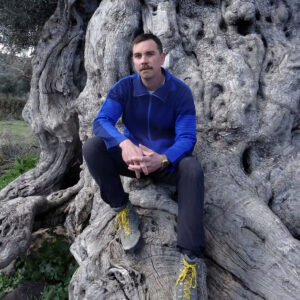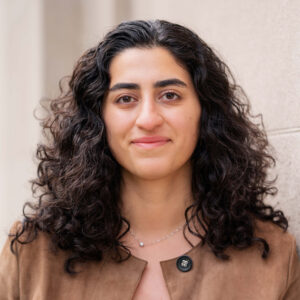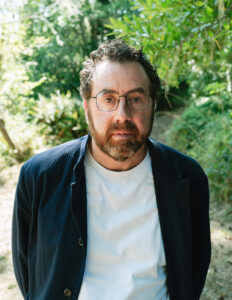
Illustration by Aldo Jarillo
Seeds of Radical Renewal Fellowship
An Incubator for Emerging Leadership

Illustration by Aldo Jarillo
Every time I step upon the Earth, I will train myself to see that I am walking on you, my Mother. Every time I place my feet on the Earth I have a chance to be in touch with you and with all your wonders. With every step I can touch the fact that you aren’t just beneath me, dear Mother, but you are also within me.
Beneath the fragmenting face of our world, seeds of change and connection are emerging that will bear new ways of being. If we are to usher in a story different from the human-centric narrative of progress that has unleashed destruction across the planet, we need a radical renewal of our relationship with the Earth and each other. What does leadership that centers the Earth, not as an abstract idea but as an embodied living presence, look like? What are ways we can be in service to this transition at this unique moment in time?
To avoid replicating the systems of power that have so damaged the Earth and its beings, we must move beyond the conventional ideas of authority and action that continue to fail us, and into new models of leadership anchored in a spiritual ecology and its values of interconnectedness, kinship, reciprocity, compassion, and reverence, which stem not only from doing, but also from a state of being.
In what ways can we respond to the social and ecological challenges of our time from a space of connection with the living Earth? What kind of interventions are needed to create the conditions for seeding ways of being that are rooted in a spiritual ecology? How can we listen deeply to voices and intelligences of the more-than-human, including them in the spaces we inhabit, create, and share? How can we embody a spiritual ecology that both nurtures and heals the human and the more-than-human amidst the unraveling of our world?
The Seeds of Radical Renewal Fellowship will investigate these questions and create an incubator of emerging leadership and creativity with an approach based on integrating the ontology of spiritual ecology, the adaptive leadership framework, and the power of art and story to create alchemical spaces of regeneration and renewal.
With the guidance of guest teachers—acclaimed writer, artist, and thinker James Bridle; adaptive leadership teacher Dana Karout; and filmmaker, author, Sufi teacher, and Emergence Magazine executive editor Emmanuel Vaughan-Lee—participants will take part in six online sessions, leading up to a five-day in-person retreat at Sharpham Trust in Devon, England. Fellows will receive a full scholarship for the program, which will cover all travel costs to attend the in-person retreat in the UK.
PROGRAM ELEMENTS
The fellowship will focus on the following core areas:
- Cultivating a relational approach to leadership that can hold multiple perspectives and move beyond the limits of authority in addressing systemic challenges.
- Applying the values of spiritual ecology to overcome challenges and conflict in organizational and real-world settings.
- Exploring the power of art and story to create interventions and spaces of regeneration and renewal that deepen a connection with the living Earth.
- Developing an embodied practice of spiritual ecology.
- Expanding our listening capacities, our understanding of intelligence, and ways of being to include the voices of the more-than-human.
- Applying learnings to real-world projects, with post-fellowship mentorship offered.
Online Program
The online portion of the fellowship will include six two-hour sessions focused on the following:
- An Introduction to the program and spiritual ecology
- Core teachings of adaptive leadership
- More than human ways of being and intelligences
- The power of story to create alchemical spaces of regeneration and renewal
In-Person Retreat
The five-day in-person retreat held at the Sharpham Trust in the UK will include the following:
- Lectures, presentations, and facilitated group discussion
- Embodying adaptive leadership through experiential exercises and case work
- Spiritual ecology practices, nature immersion, and deep listening exercises
- Storytelling workshops and exercises
- Application of fellowship elements to real-world work, projects, and interventions
- Mentorship sessions with guest teachers
The online and in-person program will be presented and facilitated by guest teachers James Bridle, Dana Karout, and Emmanuel Vaughan-Lee, with additional facilitation by Emergence Institute staff.
Post-Retreat Mentorship
In September we will offer two post-retreat online sessions for small group mentorship and continued support of real-world application of fellowship learnings in their work, projects, and interventions.
“Spiritual ecology is, at its core, achingly simple. It is the recognition of the universal spirit that imbues all living things, a recognition that must be embodied through conscious spiritual engagement with the Earth. It is not about learning something new but remembering something very, very old. Spiritual Ecology is as old as humanity itself. Like our common ancestry with all living beings, stemming from the single cell organisms we evolved from, spiritual ecology was there from the beginning of our human story. It is our beginning.” —Emmanuel Vaughan-Lee
WHAT IS SPIRITUAL ECOLOGY?
Spiritual ecology is an ontology and modern term for an ancient knowing present in traditional and place-based cultures, and spiritual and mystical traditions for millennia. It recognizes that everything within the living Earth—human and more-than-human—is animate, alive, and sacred. The recognition of this sacredness is based in an awareness of the universal spirit that is present in all things, and the bond of kinship and love we share with the living world. Spiritual ecology understands that this awareness must be embodied through a conscious spiritual engagement with the Earth. This engagement has been expressed by different cultures since time immemorial through prayer, ceremony, spiritual practice, art, music, myth, poetry, and dance (to name but a few), providing a basis for an ethical and moral framework rooted in the values of interconnectedness, kinship, reciprocity, compassion, and reverence for all beings. While spiritual ecology is no longer present in modern Western cultures (barring some notable exceptions), it is an ancestral memory we all carry within us, regardless of our cultural backgrounds. It is not something we need to learn, rather it is something we need to remember that is part of our epigenetic imprint and shared inheritance as human beings. Surfacing this memory and embodying this ancient connection is an essential part of the spiritual engagement needed with the Earth at this time.
“We need experts and authorities when dealing with technical challenges, but when approaching adaptive challenges we need to find a different orientation—this is what the adaptive leadership framework calls leadership, an improvisational and collective act always rooted in the question ‘what’s really going on here?’” —Dana Karout
WHAT IS ADAPTIVE LEADERSHIP?
The adaptive leadership framework was developed at Harvard over forty years of studying organizational successes and failures. Rooted in adult development theory and informed by organizational studies, political science, evolutionary biology, sociology, psychology, and systems thinking, it is a powerful tool for cultivating emergent leadership in changing and challenging times.
Adaptive leadership is deliberately problem-centered: rather than elevating a single “leader,” it focuses on the collective work a community must do when technical fixes are insufficient and mindsets, loyalties, or values must shift. It is designed to help people see and seize opportunities for leadership, from whatever position they are in, and to mobilize collective innovation and problem-solving.
“Where we start to move forward is when we learn to ask questions which are less concerned with ‘Are you like us?’, and more interested in ‘What is it like to be you?’” —James Bridle
WHO IS THIS FELLOWSHIP FOR?
This fellowship is for creatives, innovators, designers, artists, writers, media makers, scientists, ecologists, technologists, systems thinkers, educators, place-based practitioners, changemakers, and those in emerging or established spaces of leadership interested in working at the intersection of ecology, culture, and spirituality. It is for those seeking radical, embodied, and practical ways to bring the values of spiritual ecology into their work, projects, communities, and organizations.
This fellowship is primarily intended for those at early or mid stages of their careers and creative paths.
AWARD
Fellows will receive a full scholarship for the program, including tuition, single-room accommodation, meals, and travel to the in-person retreat at the Sharpham Trust in the United Kingdom. (Please note: visa costs are not included.)
ELIGIBILITY REQUIREMENTS
- Mandatory attendance to all online and in-person components of the fellowship is required.
- Fellows must be able to obtain a visa to travel to the United Kingdom. (Please note: Emergence cannot procure or sponsor visas.)
EXPECTATIONS
- In addition to the in-person retreat, fellows dedicate an average of six hours per week from April to September to attend live Zoom sessions and complete related assignments.
- Completion of assignments, readings, listenings, and practices between online sessions, as well as before and after the in-person retreat.
- For additional information, refer to the FAQ at the bottom of this page.
APPLICATION
Applications for this fellowship are now closed. Space in this fellowship is limited to 24 participants. Shortlisted applicants will be invited to a Zoom interview, and all applicants will receive a final decision by February 20, 2026.
For more information, please contact programs@emergenceinstitute.earth.
SCHEDULE
Online
| Date | Time |
|---|---|
| Wed, April 29, 10am-12pm (PDT) | Program overview and introductions with Emergence staff |
| Wed, May 6, 10am-12pm (PDT) | An introduction to spiritual ecology with Emmanuel Vaughan-Lee |
| Wed, May 13, 10am-12pm (PDT) | Ways of being and flow with James Bridle |
| Wed, May 20, 10am-12pm (PDT) | Adaptive Leadership, Part 1 with Dana Karout |
| Wed, May 27, 10am-12pm (PDT) | Adaptive Leadership, Part 2 with Dana Karout |
| Wed, June 3, 10am-12pm (PDT) | The alchemical power of art and story with guest teachers James Bridle, Dana Karout, and Emmanuel Vaughan-Lee |
In-Person
| Date | Time |
|---|---|
| Tues, June 16 – Sat, June 20 | In-person retreat at Sharpham Trust, Devon, UK |
Post-Retreat, Online
| Date | Time |
|---|---|
| Wed, September 2, 10am-12pm (PDT) | Post-retreat in-person small group mentorship and practical application of fellowship learnings |
| Wed, September 23, 10am-12pm (PDT) | Post-retreat in-person small group mentorship and practical application of fellowship learnings |
GUEST TEACHERS

James Bridle
James Bridle is a writer, artist, and technologist whose artworks have been commissioned by galleries and institutions and exhibited worldwide. Author of New Dark Age and Ways of Being, their writing on literature, culture, and networks has appeared in magazines and newspapers, including Wired, The Atlantic, The New Statesman, The Guardian, and The Financial Times. For BBC Radio 4, they wrote and presented the four-part series “New Ways of Seeing.”

Dana Karout
Dana Karout is a leadership educator and researcher who has worked with hundreds of people at Harvard and with various clients across the US and the Middle East, teaching and coaching based on the principles of adaptive leadership, group relations, and adult development. Her work aims to build the capacity of individuals and communities to hold conflict and navigate complexity across various levels of authority, from ministers in government to activists. She currently serves on the board of the Adaptive Leadership Network, and holds a Master in Public Policy from the Harvard Kennedy School. She is also a PhD candidate at the UC Berkeley Rhetoric Program, where she studies the theoretical and pedagogical implications of generative AI programs like ChatGPT.

Emmanuel Vaughan-Lee
Emmanuel Vaughan-Lee is an author, Emmy- and Peabody Award–nominated filmmaker, and a Sufi teacher. He has directed more than twenty documentary films, including Taste of the Land, The Last Ice Age, Aloha Āina, The Nightingale’s Song, Earthrise, Sanctuaries of Silence, and Elemental, among others. His films have been screened at New York Film Festival, Tribeca Film Festival, SXSW, and Hot Docs, exhibited at the Smithsonian Museum and London’s Barbican, and featured on PBS POV, National Geographic, The New Yorker, and The New York Times Op-Docs. His first book, Remembering Earth: A Spiritual Ecology, is forthcoming from Shambhala in summer 2026. He is the founder, podcast host, and executive editor of Emergence Magazine.
FREQUENTLY ASKED QUESTIONS
Q: Who is this fellowship for?
This fellowship is for creatives, innovators, designers, artists, writers, media makers, scientists, ecologists, technologists, systems thinkers, educators, place-based practitioners, changemakers, and those in emerging or established spaces of leadership interested in working at the intersection of ecology, culture, and spirituality. It is for those seeking radical, embodied, and practical ways to bring the values of spiritual ecology into their work, projects, communities, and organizations.
This fellowship is primarily intended for those at early or mid stages of their careers and creative paths.
Q: How long is the fellowship?
The fellowship runs from April to September 2026 and combines online sessions, an in-person retreat, and post-retreat mentorship. There are six two-hour online sessions on Wednesdays (10am-12pm Pacific) from April 29 to June 3. The in-person retreat is five days long, from June 16 to June 20, at Sharpham Trust in Devon, UK. Finally, there are two post-retreat online sessions on September 2 and 23 (also from 10am-12pm Pacific).
Q: What are the requirements of a fellow, beyond attending all sessions?
In addition to participating in all online and in-person sessions, fellows can expect:
- 4 hours per week of study, readings, and assignments before and after the in-person retreat (6 hours total if you include attending the online sessions).
- Engagement with peers and staff via Slack, email, and other communications between sessions.
- Proactive and creative participation, taking initiative in your learning and contributing actively to the fellowship community.
Q: I’m not able to attend all of the sessions but really want to join. Can I still be considered?
Fellows are expected to attend all online and in-person components of the fellowship. Partial attendance may result in the participant being asked to leave the program and incur any travel costs and possible cancellation fees.
Q: I live in a time zone that doesn’t align well with the online sessions. Will recordings be available? Can I still attend?
Fellows are expected to attend all online and in-person components of the fellowship. We understand that some time zones may make live participation challenging. Currently, recordings will not be available for the April–June sessions. However, we plan to offer other online courses in Fall 2026; some of which will be more accessible for participants in Asia and Australia time zones.
Q: Are there any fees associated with the program?
Tuition is covered for the entire program. Single-room accommodation and meals are included for the in-person retreat at Sharpham Trust. Additionally, airfare to London and trains to Totnes, UK are covered. Participants are responsible for covering their own transport to and from the airport or train station, as well as any accommodation that falls outside of the retreat dates.
Q: What are the requirements for a VISA?
This fellowship is open to participants of all nationalities, provided they are able to obtain a visa to travel to the United Kingdom. Emergence is not responsible for procuring or sponsoring visas. If accepted, we encourage fellows who require a Standard Visitor Visa to apply as soon as possible to avoid delays. Depending on nationality, participants may need either an ETA or a Standard Visitor Visa. Click here to learn more.
Q: If I’ve previously attended a Seeds of Radical Renewal Course, will I be considered for this fellowship?
Yes. This fellowship is an evolution of the Seeds of Radical Renewal Leadership course and provides new opportunities for learning, practice, and leadership development.
Q: Will you be offering this fellowship again in the future?
We anticipate offering this fellowship again in 2027.
Q: May a group of team members be selected to the fellowship together?
Members from the same team will be considered, but each applicant must submit an individual application.
Q: Are you able to offer feedback on my application if I’m not selected?
Due to the high volume of applications, we are unable to provide individual feedback to those not selected.
For more information, please contact programs@emergenceinstitute.earth.